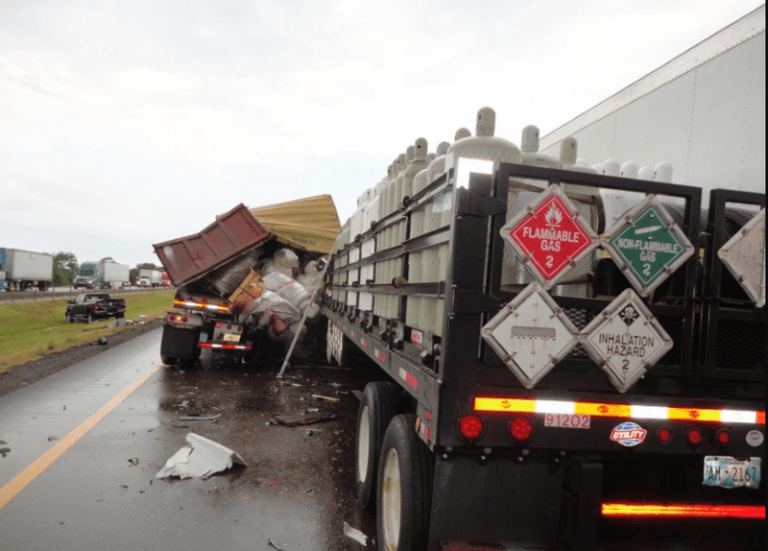WASHINGTON — A coalition of 10 trucking-related organizations has petitioned the Federal Motor Carrier Safety Administration for a rulemaking if the agency intends to change how it analyzes and publishes data on motor carrier crashes.
The petition was filed on June 14, 2019, by the Motor Carrier Regulatory Reform (MCRR) coalition, which includes organizations representing more than 10,000 carriers, shippers and brokers.
David Gee, chairman of Alliance for Safe, Efficient and Competitive Truck Transportation (ASECTT) said FMCSA officials have indicated that they plan to make permanent as a matter of enforcement policy its crash preventability pilot program, the Crash Preventability Demonstration Program, which has been in place for nearly two years.
As of the end of the first quarter this year, carriers had submitted nearly 11,000 requests for crash preventability determinations under FMCSA’s narrowly defined program since August 2017. However, Gee said the program has not been subject to a formal rulemaking process.
On its website, the FMCSA said the Crash Preventability Demonstration Program is expected to last a minimum of 24 months.
The agency plans to make the program permanent, Transportation Elaine Chao said during an appearance at the Mid-American Trucking Show in Louisville, Kentucky, in March.
“As you know, this program is a response to industry concerns that crashes caused by factors outside of a driver’s control are still shown on the driver’s record,” Chao said. “Based on positive feedback from industry stakeholders, the Department will propose to make this demonstration program permanent. And, the Department of Transportation will propose to add even more of these scenarios for prevention reviews.”
The demonstration program got its impetus after motor carriers complained that there was no method in place to determine who was at fault for accidents involving big rigs, and drivers were getting penalized on their CSA scores and motor vehicle records, and carriers were getting penalized on their CSA scores.
In its explanation of the program on its website, the FMCSA said studies show that crash involvement is a strong indicator of future crash risk.
“The Crash Preventability Demonstration Program allows FMCSA to gather data to examine the feasibility, costs, and benefits of making crash preventability determinations on certain crash types,” the website says. “FMCSA will use the information from the program to evaluate if these preventability determinations improve the Agency’s ability to identify the highest-risk motor carriers.”
Drivers and carriers alike believe that about 75 percent of the crashes involving tractor-trailers and passenger vehicles are the fault of the driver of the passenger vehicle.
In its petition, the MCRR coalition argued that FMCSA must conduct a rulemaking before adopting any permanent program to call balls and strikes on crashes.
Publication of preventability metrics would, among other things, constitute a violation of the Fixing America’s Surface Transportation (FAST) Act, the Administrative Procedure Act (APA), and federal executive orders intended to protect the industry against bureaucratic overreach in the name of guidance, the coalition told the agency.
The petition said a key problem with FMCSA’s approach is that the term “preventability” is an artificial construct that does not equate to carrier fault, much less to a systemic violation of safety regulations.
The MCRR coalition argues that the publication of preventability data and metrics would result in increased insurance rates and lost business by carriers that the FMCSA acknowledges are fit to operate and, therefore, fit for shippers and brokers to use.
The subjectivity of the preventability standard and its lack of due process suggest that adopting the trial program as policy guidance would hurt the industry, especially small carriers, the petition said.
The Motor Carrier Regulatory Reform coalition is an affiliation of organizations that frequently weigh in with FMCSA and Congress to promote reasonable regulation and enforcement affecting motor carriers and their business partners. The coalition membership varies slightly depending on the particular issue.
For purposes of the crash preventability rulemaking petition the coalition includes the Air and Expedited Motor Carriers Association, the Alliance for Safe, Efficient and Competitive Truck Transportation, the American Home Furnishings Alliance/Specialized Furniture Carriers, Apex Capital Corp., the Auto Haulers Association of America, the National Association of Small Trucking Companies, the Tennessee Motor Coach Association, The Expedite Alliance of North America, the Transportation & Logistics Council, and the Transportation Loss Prevention & Security Association.
The Trucker News Staff produces engaging content for not only TheTrucker.com, but also The Trucker Newspaper, which has been serving the trucking industry for more than 30 years. With a focus on drivers, the Trucker News Staff aims to provide relevant, objective content pertaining to the trucking segment of the transportation industry. The Trucker News Staff is based in Little Rock, Arkansas.








